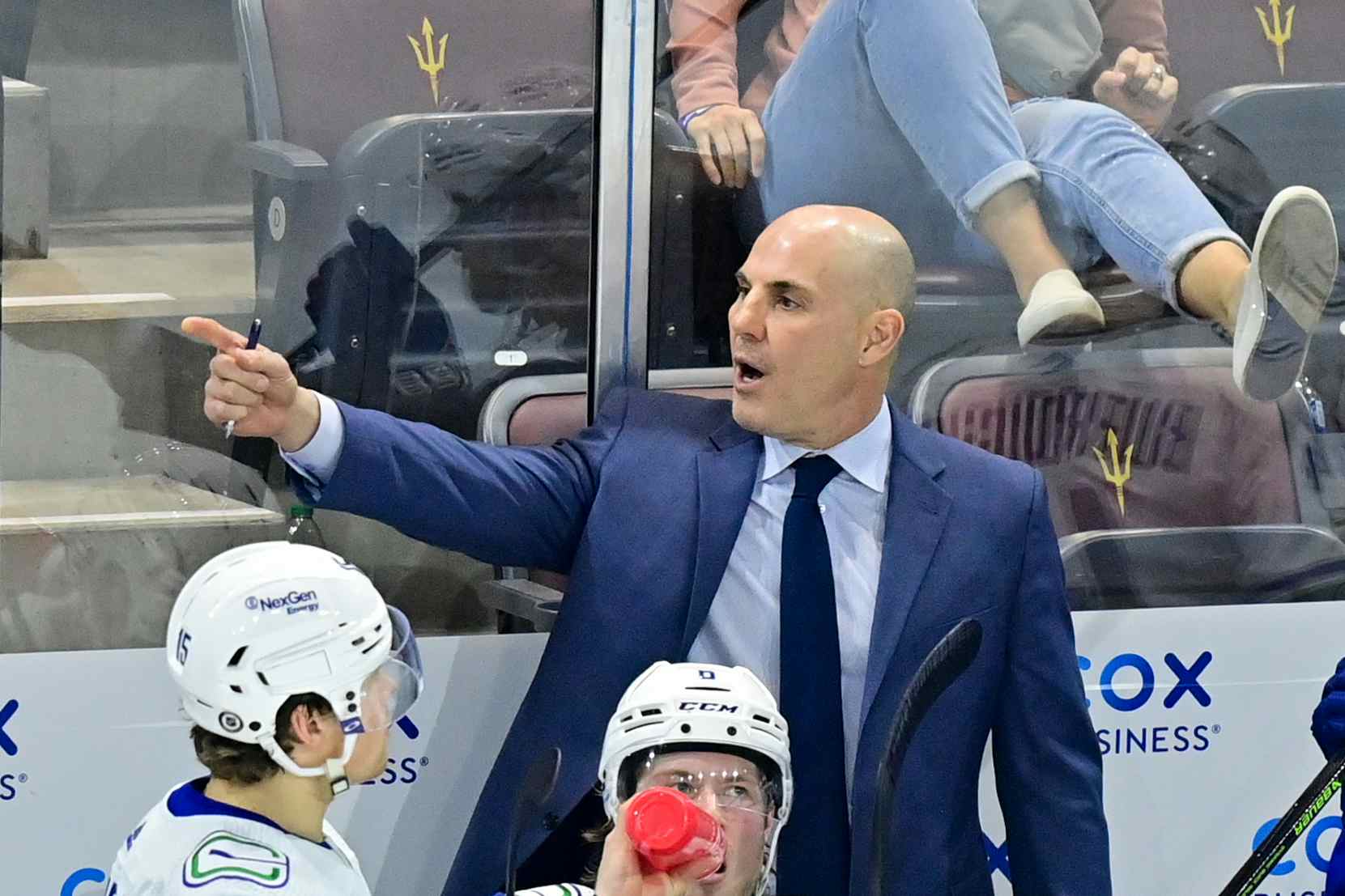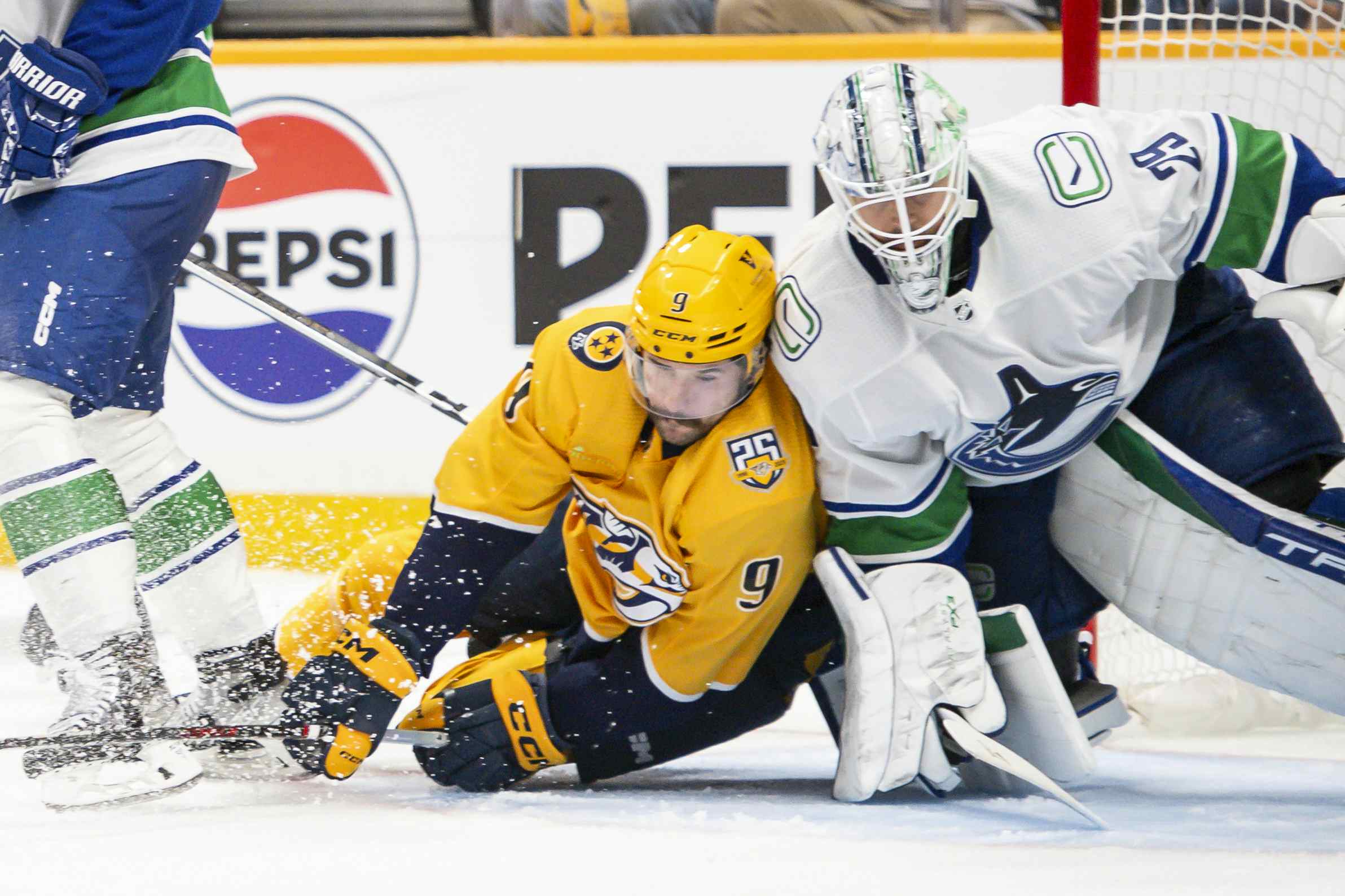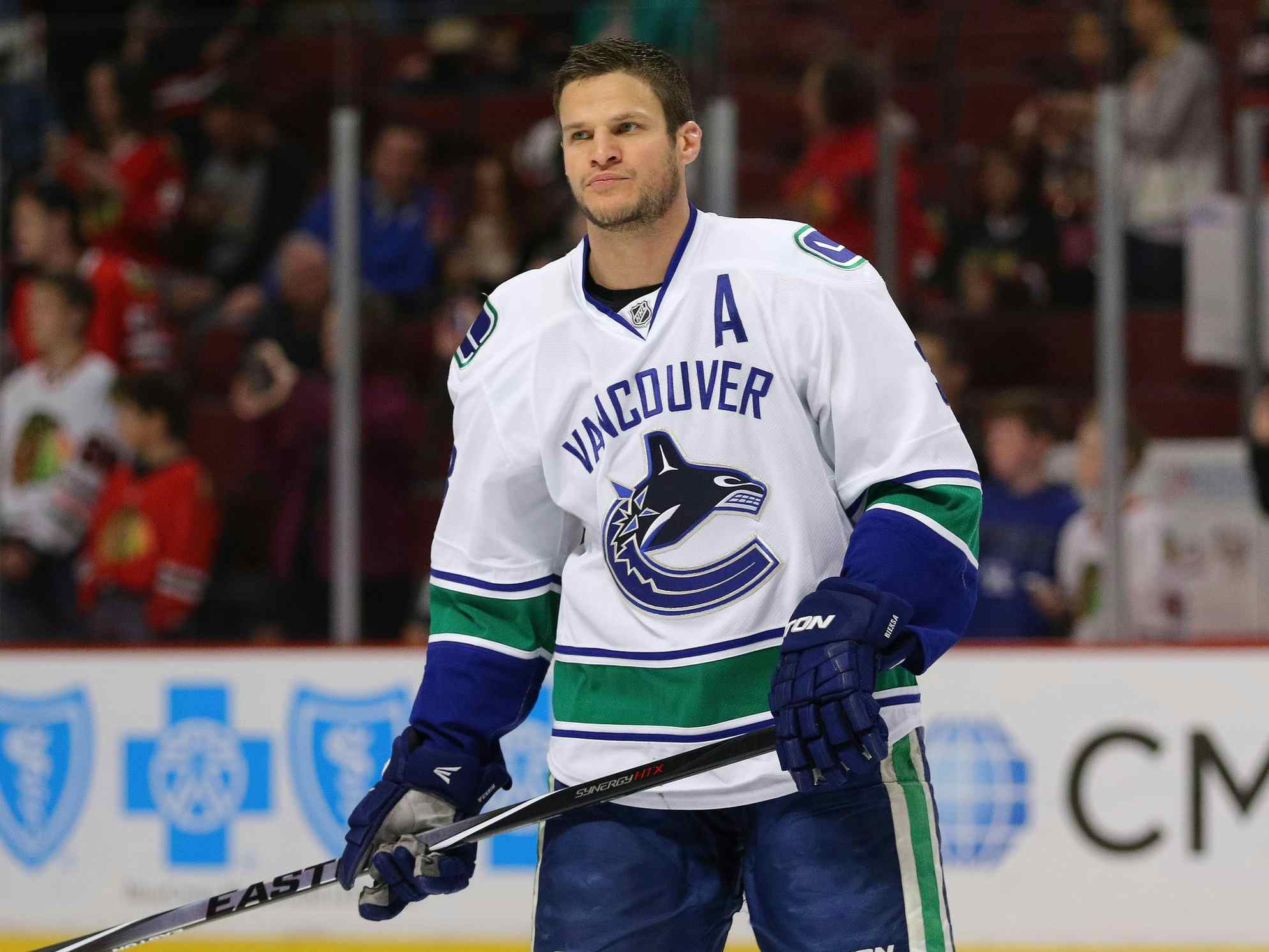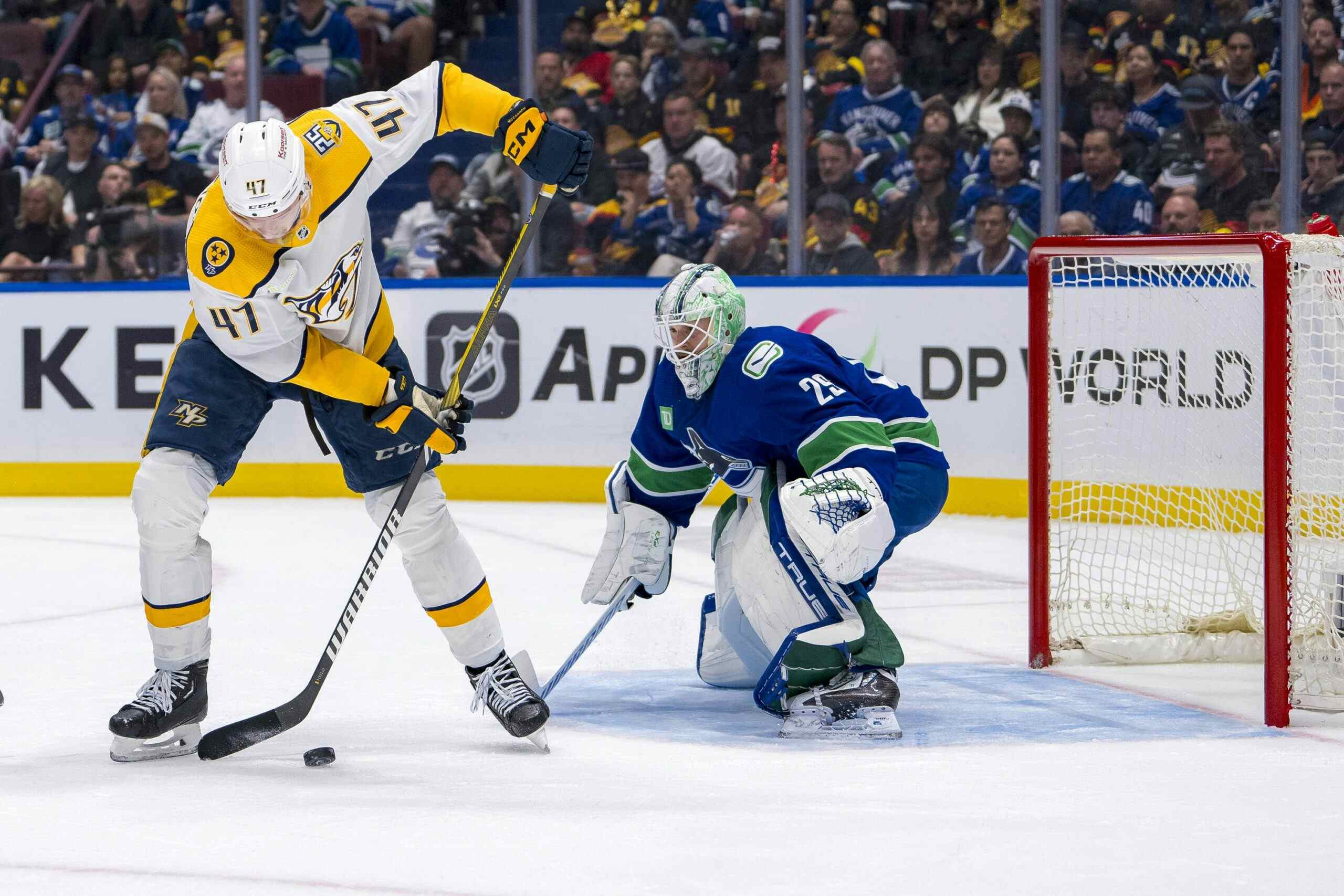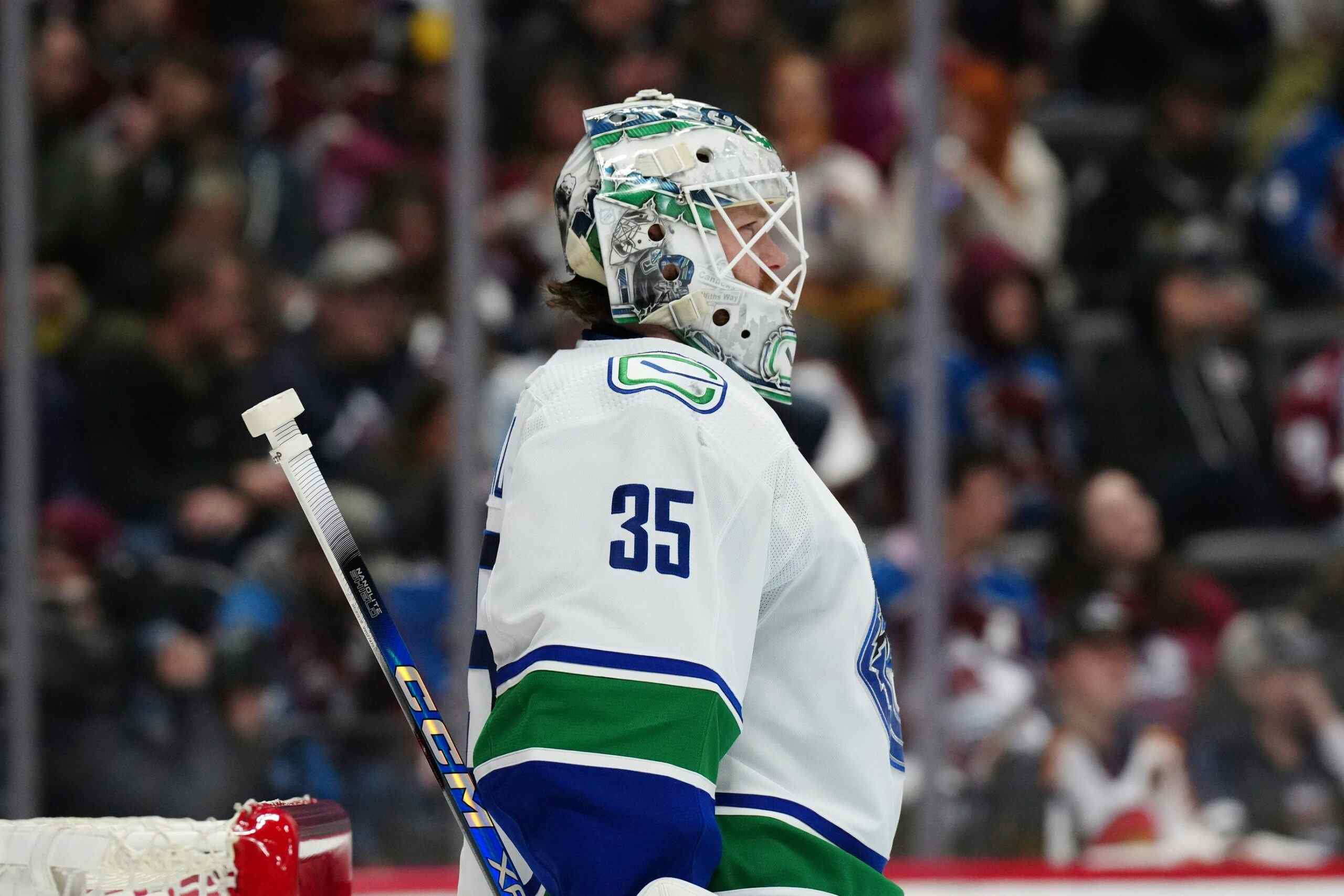NHLPA Head Paul Kelly Fired
Darren Dreger of TSN first broke the news that elements within the NHLPA were dissatisfied with Paul Kelly’s performance as the head of the NHLPA. At 3AM eastern time, Dreger passed on the news that the NHLPA executive board (made up of the thirty team representatives) had voted to terminate Kelly’s employment.Details are still sketchy, and the chief question – why? – remains unanswered this morning. Until we know what rationale the players association had for firing Kelly, it’s impossible to judge if it was the correct move. However, early signs are not encouraging.
The first alarming item is the men who organized this palace coup. By all accounts, the man leading the way was none other than NHLPA interim ombudsman, and former Canadian Autoworkers Union head Buzz Hargrove.
The CAW has long been associated with the NDP at both the federal and provincial levels. Hargrove almost single-handedly destroyed ties with the two entities by encouraging “tactical voting” to stop the Conservatives in the 1999 Ontario provincial and 2006 Canadian federal elections. Such tactical voting actually worked in the favour of both the Harper and Harris Conservatives, and in 2006 Hargrove was expelled from the NDP. The CAW retaliated by severing all union ties with the party.
Hargrove has drawn fire from more centrist sources as well – including Paul Martin, who he supported for Prime Minister in 2006. Martin was forced to turn on Hargrove after Hargrove gave a speech encouraging voters in Quebec to vote for the Bloc Quebecois over the Conservatives; this despite the fact that the Bloc Quebecois’ raison d’etre is the breakup of the country.
In February, Hargrove was named ombudsman after Eric Lindros resigned the post due to disagreements with Kelly. In this capacity, Hargrove led the attack on Kelly.
In addition to Hargrove, key organizers behind the putsch are seen to be former ombudsman Eric Lindros, advisory board head Ron Pink and general counsel Ian Penny. I can’t put it any better than Ken Campbell did in The Hockey News:
The ringleaders in Kelly’s dismissal are a former player who has run up against the establishment at every turn and resigned from the PA because he couldn’t work with Kelly (Lindros); the man who didn’t get the job when the PA decided Kelly would be a better choice (Pink); and one of the most confrontational labor leaders of our generation (Hargrove).
Penny also stands as a possible replacement for Kelly.
Still, the rogues’ gallery that ousted Kelly is only part of the reason why at first glance his dismissal looks to be a poor decision. Another key factor is the reasoning behind the decision. Scott Morrison does a nice job of summarizing the various theories out there:
According to whispers, he was too tight with the league, didn’t work hard enough at getting to know his own constituents and didn’t focus on the issues the players felt were most important, whatever the heck that means. There is even one report that suggests his biggest sin was being too media friendly.None of which are remotely reasonable grounds for dismissal, of course. But they are bullets in the chamber of what is now a smoking gun that was fired at Kelly early Monday morning in Chicago.
For the first time in ages, the players’ association looked like it could work with the NHL. Paul Kelly made a public effort not to let the acrimony which characterized the relationship between Gary Bettman and former NHLPA head Bob Goodenow (which ultimately resulted in the loss of the 2004-05 NHL season) continue; as a result, he’s criticized as being too friendly with the league.
Kelly’s criticized as being too distant from the players; but then, that’s hardly surprising given that the two men who held the role of ombudsman – and thus acted in many ways as the players’ voice – are serial malcontents.
The last sin – that of being too media friendly – is completely absurd. For the first time since Alan Eagleson ran the NHLPA, the union looked to be making public relations gains. It goes without saying that such gains were good for the union – during the 2004-05 lockout, the majority of fans sided strongly with NHL ownership. That support in turn led to a quick recovery after the lockout because many fans – certainly ones in Western Canada – viewed it as necessary. Public pressure could have been a strong weapon in the NHLPA’s favour going forward – a weapon they appear to have no interest in keeping.
A third reason against the NHLPA’s decision is the constant turmoil and political gamesmanship that seems to characterize the union’s head office. Whoever replaces Kelly will be the fourth NHLPA director in just five years. Bob Goodenow stepped down after his hard-line stance was ultimately turned against by the players. His successor, Ted Saskin, was hired improperly and was ultimately dismissed after it was revealed that he was monitoring the emails of players and player agents. Kelly, an outsider recruited by a search committee, represented a welcome breath of fresh air.
All of this brings us to Kelly himself. Kelly spent five years prosecuting former NHLPA head Alan Eagleson. As Chris Chelios put it when Kelly was hired:
“Paul relentlessly pursued a breach of ethics in this union, and that knowledge of our history will undoubtedly drive him to restore integrity to this position and to our Association. His resume is beyond impressive and he is passionate about protecting our best interests. We are excited about what awaits us going forward.”
Additionally, Kelly has both played (in high school and college) and coached (spending five years coaching youth hockey and seven years as a high school coach) the game, and brought over twenty-five years of legal experience to the table. Shawn Horcoff, the Oilers’ union representative and one of the five-man search committee (Eric Lindros was also a member) who unanimously recommended Kelly for the job, was an early supporter:
“During the review and consultation period of this search, Paul Kelly’s name kept coming back to the top of the list as the prime candidate to take us forward. A number of highly qualified candidates were evaluated and interviewed, but at the end of the process, we were unanimous in selecting Paul as the candidate to take back to the membership. His tremendous legal credentials, in addition to his past involvement with players and our Association, really stood out.”
Kelly’s public image since has been beyond reproach; he’s been an insightful commentator on hockey, has worked to restore the NHLPA’s public reputation, and seems to have fixed much of what was dysfunctional in the union’s relationship with the league. The NHLPA’s director and assistant director of player affairs (Glenn Healy and Patrick Flatley) remained Kelly supporters to the bitter end; Flatley reportedly resigned minutes after Kelly was fired.
There may yet be developments that reveal Kelly’s dismissal as a correct – even necessary – move, but for the moment it appears to be yet one more poor decision for a players’ association that has a lengthy history of making them.
Recent articles from Jonathan Willis

